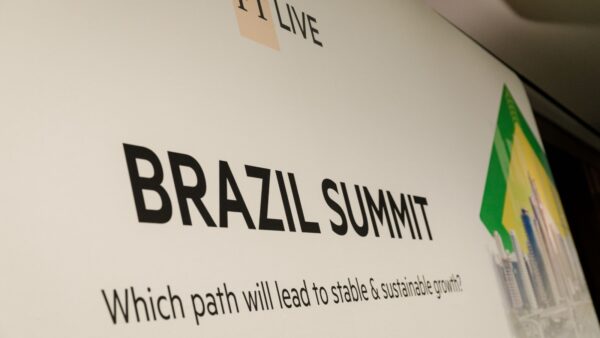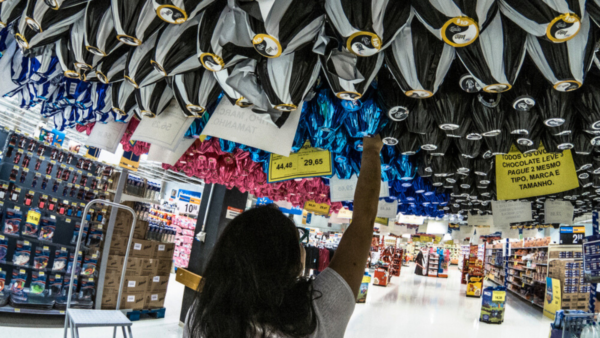Brazil’s power structure is split between the Executive, Legislative, and Judiciary branches. In grossly oversimplified terms, the Legislative makes laws, the Executive sanctions them, and the Judiciary analyzes whether they are constitutional. Beyond this, however, there is another level of governance which has just as much of an impact on the daily lives of Brazilians. Nominally under the umbrella of the Executive branch, there is a wide range of regulatory and government agencies which establish rules and norms in a number of key sectors.
Despite their relative autonomy, these agencies still have formal links to cabinet ministries and as such can be targets of political influence. Other times, they stand in opposition to the government, providing necessary checks and balances in important areas of Brazilian industry. Here are some of the most important regulatory agencies in Brazil today.
Anvisa
The biggest regulator of all, the Brazilian Sanitary Surveillance Agency (Anvisa) is the body responsible for regulating pharmaceuticals, food products, and establishing sanitation procedures. Created in 1999 under the Fernando Henrique Cardoso government (which oversaw the creation of many of Brazil’s major regulators), Anvisa is linked to the Ministry of Health.
It is led by a five-person board of directors, who are appointed by the president’s office for three-year terms. William Dib, a former congressman for the Brazilian Social Democracy Party (PSDB), is the current Anvisa chairman, having been awarded the post by former President Michel Temer in 2018.
Recently, Anvisa has made the headlines for two reasons. First, for the record amount of pesticides it has approved for use in Brazil in 2019, and second, for its upcoming debate on the legalization of growing cannabis for medical use.
The Jair Bolsonaro government is forcefully anti-drugs and has opposed Anvisa’s move to regulate medicinal marijuana. Despite the agency putting forward a tame and highly restrictive proposal, Citizenship Minister Osmar Terra declared that Anvisa “could be shut down” if the regulation is approved.
The recent appointment of former Navy admiral Antônio Barra Torres to a vacancy on the Anvisa board has been seen as an attempt by the government to stifle the advance of the legalization of medicinal cannabis.
Cade
The Administrative Council of Economic Defense (Cade) is Brazil’s antitrust watchdog, similar to the U.S. Federal Trade Commission. The declared mission of the Cade is to protect free competition in the Brazilian market, and is the highest tribunal on all antitrust matters.
The agency is made up of three main branches: the Administrative Tribunal of Economic Defense, the General Regulatory Council, and the Department of Economic Studies. The council monitors the markets and investigates suspicions of antitrust practices, which are then tried by the tribunal. The Department of Economic Studies assists the tribunal and council by elaborating reports and analyses on administrative proceedings.
Cade evaluates mergers and acquisitions for any indications of antitrust practices, authorizing (or not) the completion of these transactions.
A crucial element to competition in Brazil, Cade is currently hamstrung, having recently lost four of its seven board members after their terms expired. Cade’s members are appointed by the president, but Jair Bolsonaro has delayed nominating replacements, in a hope to use these seats as political currency.
He intends to give two of these nominations to Senate President Davi Alcolumbre, in an attempt to ensure the Senate approves the appointment of the president’s son, Eduardo Bolsonaro, as Brazilian Ambassador to the U.S.
Without replacements, Cade does not have a quorum to make any decisions, meaning that no mergers or acquisitions can be authorized in the country until the agency’s board is replenished.
ANP
Linked to the Ministry of Mines and Energy, the National Petroleum Agency (ANP) is the agency responsible for regulating the oil, natural gas and biofuels industries in the country, establishing national policy for these areas. It has been in the news recently surrounding the government’s plan to open up the gas market to the private sector, in what the Ministry of the Economy has called “a shock of cheap energy.”
The program involves a massive divestment push from Petrobras, as an attempt to reduce its monopoly in several levels of the oil production chain. Last week, for instance, the ANP authorized the sale of the Maromba oil field, controlled by Petrobras, to Norwegian company BW Offshore. The state-owned oil giant is also awaiting the green light from the ANP to sell off several fields in the Potiguar Basin, in the Brazilian Northeast.
CVM
Brazil’s Securities Commission (CVM) is in charge of regulating the country’s financial markets, licensing publicly-held corporations, accrediting independent auditors, among many other responsibilities. Crucially, it also has the power to investigate and punish market irregularities, being able to dish out fines of up to BRL 500 million each. As an example, earlier this year, the CVM gave a series of fines adding up to BRL 536.5 million to Eike Batista, formerly the richest man in Brazil, for insider trading.
The top level of the CVM is made up of a board of five directors, all appointed by the president’s office.
Anatel
Set to take a prominent role in regulatory matters later this year, the National Telecommunications Agency (Anatel) is the body responsible for regulating the telecom industry in the country. Its scope includes telephone companies, internet service providers, and cable television companies.
Brazil is currently discussing the ins and outs of a new telecom law, as the previous legislation dates back to 1997 and led to the creation of Anatel. Suffice to say, the telecoms landscape in Brazil has changed considerably since the 1990s, and Congress is discussing a pro-business bill to provide legal security for investments in the sector.
Regardless of how the telecom law process pans out, Anatel will remain in the spotlight for 2020, when it is expected to hold the long-awaited auction of 5G frequencies in Brazil. One of the agency’s main concerns surrounding the technology is the potential interference it may cause with dish antennas used in rural areas for TV signal.
Others regulatory agencies
Beyond these leading agencies, there are over a dozen more regulators covering other important sectors. With relation to infrastructure, there are the National Agencies of Land Transport (ANTT), Waterway Transport (ANTAQ), and Civil Aviation (ANAC) which oversee the administration of highways, railways, ports, and airports. The government’s recent push for privatization has seen these agencies take a leading role, as concessions for several roadways and airports are being sold to the private sector.
The ANTT is also worth special attention as it is the agency responsible for establishing price tables for Brazil’s truck drivers, who are responsible for transporting 60 percent of all cargo in Brazil—90 percent, when not considering iron ore and crude oil, which are not transported by road.
Furthermore, there are the National Agencies of Water (ANA), Electrical Energy (ANEEL), Supplementary Health (ANS), Mining (ANM), and Cinema (ANCINE), which act as the head regulators of their respective sectors.[/restricted]










 Search
Search






































